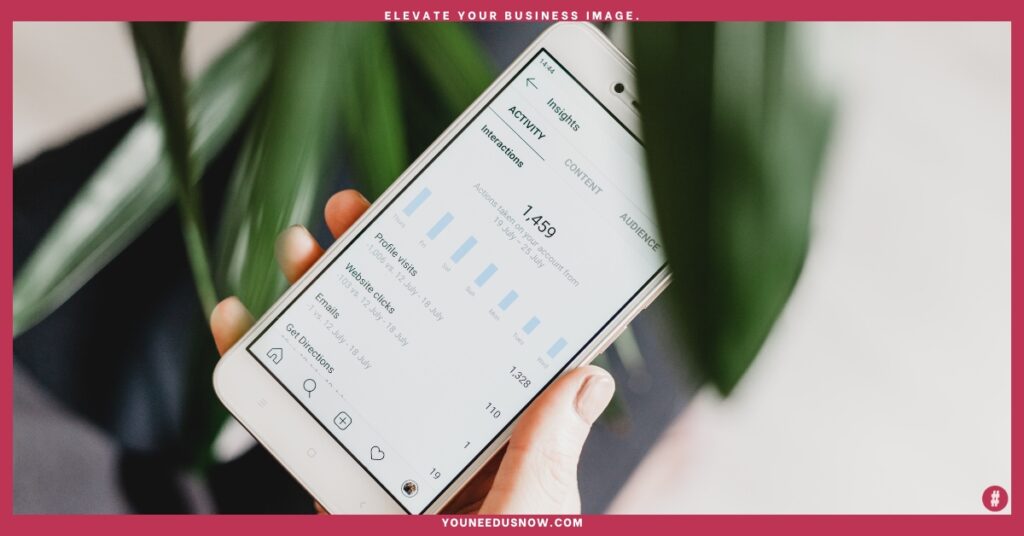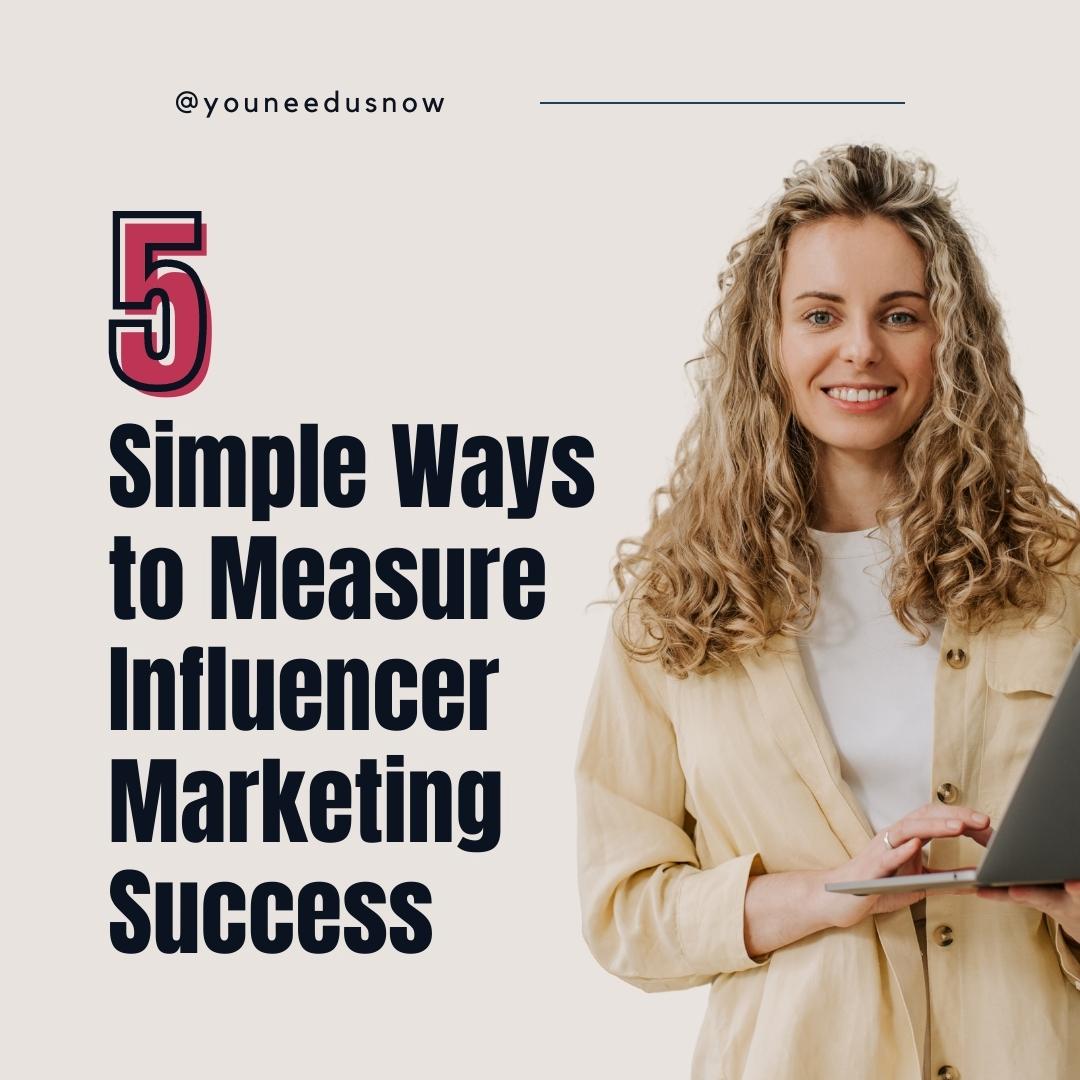Influencer marketing has become a crucial component of many companies marketing strategies. It involves partnering with influential individuals on social media to promote your brand or product. However, determining the effectiveness of these campaigns can be challenging. In this post, we’ll discuss the five foolproof ways to measure the success of your influencer marketing campaign.

I. Introduction
A. Explanation of Influencer Marketing
Influencer marketing is a marketing strategy that involves partnering with influential individuals on social media to promote your brand or product. This type of marketing has become increasingly popular in recent years due to its effectiveness in reaching a targeted audience.
B. Importance of Measuring Success
Measuring the success of your influencer marketing campaign is crucial to understanding its impact on your brand. Without measuring success, it’s challenging to determine what’s working and what’s not and adjust your strategy accordingly.
II. Setting Up Your Influencer Marketing Success Metrics
A. Identify Your Goals
Before measuring success, you need to establish your goals. Are you looking to increase brand awareness, drive sales, or boost engagement? Once you’ve identified your goals, you can select the metrics that align with them.
B. Choosing Your Metrics
You can use various metrics to measure the success of your influencer marketing campaigns, such as engagement, reach, conversion, sales, and social sentiment. Choosing the right metrics will depend on your goals and the type of campaign you’re running.
C. Setting Benchmarks
To effectively measure success, you need to set benchmarks for your metrics. Benchmarks help you understand if your campaign is performing better or worse than expected and make adjustments accordingly.
III. Measuring Success
Measuring success is an essential part of any influencer marketing campaign. By tracking different metrics, you can determine the effectiveness of your campaign and make data-driven decisions to improve it.
A. Engagement Metrics
Engagement metrics are important because they show how well your influencer’s post resonates with their audience. High engagement rates indicate that the content is engaging and attractive to the audience, which can lead to increased brand awareness and loyalty. On the other hand, low engagement rates could mean that the content needs improvement or that the audience is not the right fit for your brand.
You can track likes, comments, shares, and clicks on the influencer’s post to measure engagement metrics. You can also look at the number of followers gained during the campaign and the overall growth rate of the influencer’s account.
B. Reach Metrics
Reach metrics measure the number of people who have seen your influencer’s post. This is important because it shows how many people are exposed to your brand and can help increase brand awareness.
You can track impressions, views, and reach to measure reach metrics. Impressions refer to the number of times the post was displayed on a screen, while views indicate the number of times the post was watched. Reach, conversely, measures the number of unique users who saw the post.
C. Conversion Metrics
Conversion metrics measure the number of people who took action after seeing your influencer’s post. You can track clicks, sign-ups, or purchases using tracking links or coupon codes to measure conversion metrics. By monitoring these metrics, you can see which influencers and posts drive the most conversions and adjust your strategy accordingly.
D. Sales Metrics
Sales metrics measure the revenue generated from your influencer marketing campaign. You can track coupon codes or monitor sales during the campaign to measure sales metrics. By analyzing the revenue generated from the campaign, you can determine the ROI and adjust your budget for future campaigns.
E. Social Sentiment
Social sentiment measures the overall sentiment of your brand or product on social media. This is important because it shows how your audience perceives your brand and can help you identify areas for improvement.
To measure social sentiment, you can track mentions of your brand or product and analyze the sentiment of those mentions. This can be done manually or using social listening tools that analyze sentiment automatically.
Overall, by measuring these five key metrics, you can gain valuable insights into the effectiveness of your influencer marketing campaign and make data-driven decisions to improve it.
IV. Tools to Track Metrics
A. Social Media Analytics
Various social media analytics tools can help you track and analyze engagement and reach metrics on social media platforms. Most social media platforms provide their own analytics tools that allow you to track your performance and see how your content is performing. For instance, Facebook Insights, Twitter Analytics, and Instagram Insights are some of the most popular social media analytics tools. These tools can help you understand which posts are performing well, who your audience is, and how your content is being shared.
B. Google Analytics
Google Analytics is a free tool that can help you track conversion and sales metrics on your website. It provides insights into website traffic, visitor behavior, and conversion rates. By setting up conversion tracking on your website, you can track how many people are completing a specific action, such as filling out a form or making a purchase. Google Analytics can also help you understand which pages on your website are most popular, which traffic sources drive the most traffic, and which pages lead to the most conversions.
C. YNUN Influencer Marketing Hub
YNUN Influencer Marketing Hub is a centralized platform for managing and tracking influencer marketing campaigns. This platform offers features such as influencer discovery, campaign management, and tracking and reporting of critical metrics. YNUN can help you track all the metrics mentioned above in one place, allowing you to easily measure the success of your campaigns and make informed decisions about future campaigns.
V. Analyzing Results and Improving Campaigns
A. Interpret Results
Once you have collected and analyzed the metrics, it is essential to interpret the results to understand what worked and what didn’t. Look for patterns or trends that can help you understand how your audience engaged with your campaign and how it affected your overall goals.
B. Learn From Failures and Successes
Analyzing your successes and failures is crucial in understanding your campaign’s practical aspects and areas that need improvement. It’s vital to see failures as learning opportunities, as they can help you understand what not to do and improve your future campaigns. Remember that a failure in one campaign does not necessarily mean that your marketing strategy was unsuccessful but rather that it did not resonate well with your target audience. Take the lessons from your successes and failures and apply them to future campaigns to continuously improve your influencer marketing strategy.
C. Adjust Campaigns for Improvement
Based on your analysis, adjust your campaigns for improvement. This can include tweaking your goals, metrics, or influencer selection. Use your insights from previous campaigns to refine your strategy and make informed decisions about future campaigns. Remember that influencer marketing is a constantly evolving field, and staying up-to-date with the latest trends and best practices is essential to achieve the best results.
VI. Conclusion
In conclusion, measuring the success of your influencer marketing campaign is essential to ensure that you are achieving your goals and getting the most out of your investment. You can continuously improve your campaigns and achieve better results by setting clear goals and metrics, tracking and analyzing results using appropriate tools such as the YNUN influencer marketing hub, and learning from successes and failures. Experiment with strategies and influencer selections to find the best for your brand or product. Overall, measuring the success of your influencer marketing campaign should be an ongoing process to help you achieve your business goals and stay ahead of the competition.



